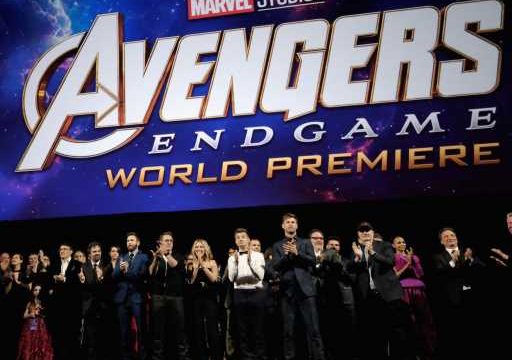Avengers: Endgame was a cinematic masterpiece: the MCU’s action-packed and emotionally stirring conclusion to a 22-film saga fans have been expecting for over a decade. From Tony Stark’s denouement — a narrative arc marked by a transition from selfish egotist to selfless savior — to Rogers’ relinquishing of the shield and passing of the Cap mantle, the film may go down in history as the peak of the superhero genre.
Fans and critics argue that another film of this magnitude will take years to come to fruition, and it may not boast the impressive ensemble of its successful predecessor. However, putting the nostalgia factor aside — releasing the emotions tied to bittersweet farewells — this movie is a narrative accomplishment, but is it the most influential? Is Avengers: Endgame the most important superhero movie?
When you define the word important, you will find it refers to something that is of “great significance or value; likely to have a profound effect on success, survival, or well-being.” When referring to artwork, in particular, it’s virtually synonymous with influence. So, the greater question becomes: which movies are more influential than Endgame?
When we look back, what movies will be revered as having changed the cinematic landscape for the better, having altered society’s perception surrounding the genre? Which movies will be, in the end, more vital to our culture’s endgame than Endgame itself.
‘Black Panther’
When you think about Black Panther, the reasons its influence will remain undying are endless. Continuing on the conversation Wonder Woman started regarding representation and diversity in the superhero space, Black Panther completely defied all notions surrounding successful western entertainment, breaking the box office and receiving critical and audience adulation to boot.
From the black director helming the film to the black cast, and African-inspired costume design, Black Panther proved that diverse voices are desired in this genre, and hopefully, will lead to many movies of its kind down the line.
‘Deadpool’
When you take a superhero movie and slap an R-rating on it, there’s no turning back. Those behind this movie took a huge risk that ultimately paid off, proving that the superhero genre must not be bound to the family-friendly shackles it has so long retained.
Deadpool was raunchy and downright inappropriate in its approach to humor; the vulgarity at play augmented the character’s likability, sealing the deal for fans who have so long waited for an anti-hero with a little less of an unrealistic savior complex. Deadpool proved that big-budget superhero films can appeal to adults who don’t want to take the kids along for date-night.
‘Wonder Woman’
DC beat the MCU to the punch with a standalone movie for a classic heroine, and the film soared. One of the only successful installments by DC in the last decade, Wonder Woman introduced a female heroine without relying on uninspired tropes and dated cliches for her personification.
Wonder Woman could have easily become a caricature — a two-dimensional savior lacking complexity — but she didn’t. This movie boasts a “sincere intimacy” as the New Yorker claims, making it a voice for women, underrepresented in the genre, without faltering to overtly emphasized social justice warrior pleas. It is grand in its subtlety and efficacy.
‘Iron Man’
You can’t discuss influential superhero movies without mentioning Iron Man; without the first movie focusing on Tony Stark, the entire Avengers saga would be amiss. The success of this movie catalyzed a 22-film narrative that will go down in history as one of the most successful film franchises ever. For that reason alone, it deserves a space here.
Iron Man was funny and light-hearted. The film offered up some dire consequences, without creating a dire feel, which laid the groundwork for the future of the MCU’s overall tone.
‘Spider-Man: Into the Spider-Verse’
Heart, humor, inclusivity, humanity, pain, grief, regret, and heroism all converge in this movie via a spectacular animated telling. As most critics argue, Spider-Man: Into the Spiderverse managed to do something completely “new” in an over-saturated genre. It’s narrative approach made for a superhero experience unlike any other.
The action, the humor, and the need to save the day were all present, yet this film still strayed far from all its predecessors, creating a vibrant world that stands on a stage all its own.
While Avengers: Endgame is not to be poo-pooed, it’s hard to argue that the films above do not bear more social relevance, more ingenuity, and more culturally reflective stances, leading one to the conclusion that they are “more important.”
Source: Read Full Article

